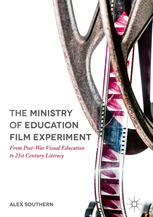

Most ebook files are in PDF format, so you can easily read them using various software such as Foxit Reader or directly on the Google Chrome browser.
Some ebook files are released by publishers in other formats such as .awz, .mobi, .epub, .fb2, etc. You may need to install specific software to read these formats on mobile/PC, such as Calibre.
Please read the tutorial at this link: https://ebookbell.com/faq
We offer FREE conversion to the popular formats you request; however, this may take some time. Therefore, right after payment, please email us, and we will try to provide the service as quickly as possible.
For some exceptional file formats or broken links (if any), please refrain from opening any disputes. Instead, email us first, and we will try to assist within a maximum of 6 hours.
EbookBell Team

4.1
10 reviewsThis book uncovers a unique post-war film production programme and explores how this first British government intervention into ‘visual education’ is relevant to film education today. In 1943 the Ministry of Education took the decision to sponsor production of an experimental programme of nonfiction films specifically for the classroom. Almost 70 years later, the British Film Institute launched a new strategic development plan, at the centre of which was the aim to prove the value of ‘21st century literacy’ to Government and embed film in the school curriculum. This aim had been the focus of film education initiatives in previous decades, without resolution. Through archival research into original documents and the films, The Ministry of Education Film Experiment builds a story of conflict and collaboration between the Ministry and the filmmakers, offering an insight into why the struggle for government recognition of film education still remains.